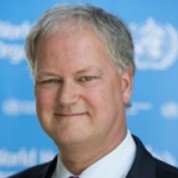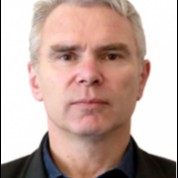Parallel Session 3.2
Lessons Learned from a One Health Approach to AMR
2 February 2018
13:00 - 15:00 hrs.
| Venue | : | LOTUS SUITE 1-4 |
BACKGROUND :
Antimicrobial resistance (AMR) is a major threat to global health, the world economy, food safety and food security, and therefore poses a unique challenge to humanity. All countries – regardless of their economic situation, the strength of their health systems or their level of antibiotic consumption – will face disastrous consequences if the spread of AMR is not contained. Global and community solutions are needed to prevent overuse of antibiotics, including development of new vaccines, improved diagnostic tests and, above all, universal access to antibiotics which are affordable and effective against drug-resistant diseases. Antimicrobials also play a significant role in both plant and animal health, and therefore, in global food production. While the important goal of reducing antibiotic usage for growth promotion in animals is increasingly implemented, antibiotics will be needed in maintaining the health of food-producing animals, and the safety of their products.
AMR occurs when disease-causing pathogens (including bacteria, fungi, parasites, or viruses) develop defense mechanisms against the drugs designed to treat them, making these resistant pathogens difficult or even impossible to treat. This resistance is the inevitable result of antimicrobial use and an example of natural selection in practice. The more antimicrobials are used, the less effective they become. Rising levels of AMR are a sign that natural selection is taking place more rapidly than innovation in developing new antimicrobials. If this process is to be reversed, the world must innovate more, but also slow natural selection – by eliminating excess use of all antimicrobials; only using second- and third-level treatments when absolutely necessary; and ensuring appropriate access to treatments.
The importance for countries to develop and implement one health focused national action plans
In line with the Global Action Plan on Antimicrobial Resistance, developed by WHO with participation and endorsement by the OIE and FAO, the development of countries’ own National Action Plans (NAPs) on AMR is an essential first step towards establishment of an effective response to combat AMR. At the Sixty-eighth WHA in 2015, Member States committed to have NAPs in place by May 2017. Also in 2015, the OIE World Assembly of Delegates adopted Resolution No 26, committing to development of NAPs in the spirit of “One Health”, taking into account the use of antimicrobial in animals and ensuring collaboration with public health officials. In February 2016, WHO, in collaboration with FAO and OIE, developed a manual for developing NAPs on AMR and a set of accompanying tools. The three organizations have been working closely with stakeholders to provide technical support to countries for the effective development of their NAPs.
Sharing Expertise for a Coordinated AMR Response
Ensuring political commitment, engagement and support has been a challenge as understanding of AMR, multisectoral collaboration and the importance of developing and implementing NAPs is still somewhat limited. The identification of best practices in human, animal and plant health continues to play an important role as the world is still learning what works best in particular contexts. WHO is sharing expertise regarding human health and developing communities of practice to support countries with ongoing efforts. Inter-sectoral action, and the complexity of coordination within and across sectors, continues to be a challenge, particularly as countries shift towards NAP implementation.
Global Action Plan for Antimicrobial Resistance
At the Sixty-Eighth World Health Assembly in May 2015, WHO Member States endorsed a global action plan through resolution WHA68.7 to tackle antimicrobial resistance, including antibiotic resistance, the most urgent drug resistance trend.
The AMR global action plan contains five major strategic objectives:
1. to improve awareness and understanding of antimicrobial resistance;
2. to strengthen knowledge through surveillance and research;
3. to reduce the incidence of infection;
4. to optimize the use of antimicrobial agents; and
5. to develop the economic case for sustainable investment that takes account of the needs of all countries, and increase investment in new medicines, diagnostic tools, vaccines and other interventions.
The global action plan, which takes into account the commitment, perspectives and roles of all relevant stakeholders is a plan in which everyone has clear and shared ownership and responsibilities. The endorsement of the plan reflects a global consensus that AMR poses a profound threat to human health.
One Health Approach
Addressing the rising threat of AMR requires a holistic and multisectoral (“One Health”) approach because antimicrobials used to treat various infectious diseases in animals may be the same as or similar to those used in humans. Resistant bacteria arising in humans, animals, plants or the environment may spread from one to the other, and from one country to another. One Health recognizes that the health of humans, animals and ecosystems are interconnected. It involves applying a coordinated, collaborative, multidisciplinary and cross-sectoral approach.
The WHO, FAO and OIE speak with one voice and take collective action to minimize the emergence and spread of AMR. The aim is to:
• Ensure that antimicrobial agents continue to be effective and useful to cure diseases in humans and animals;
• Promote prudent and responsible use of antimicrobial agents;
• Ensure global access to medicines of good quality.
OBJECTIVES :
• To gain a better understanding of how the world can learn from the past 2.5 years of AMR response since the Global Action Plan as we shift from development of AMR strategies towards implementation
• To identify main challenges and successes in implementing national action plans and determine ways to productively more forward
Moderator

Martha Gyansa-Lutterodt
Chief Pharmacist
IACG
Ghana
Panelist
Juan Lubroth
Chief Veterinary Officer
Food and Agriculture Organization of the United Nations
Italy

Judith Shamian
Former President
International Council of Nurses
Canada

Marc Sprenger
Director of the AMR Secretariat
World Health Organization
Switzerland

Matthew Stone
Deputy Director General
World Organisation for Animal Health
France
Documents
Biosketch:

